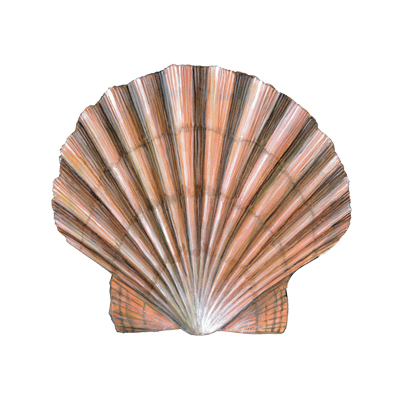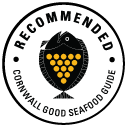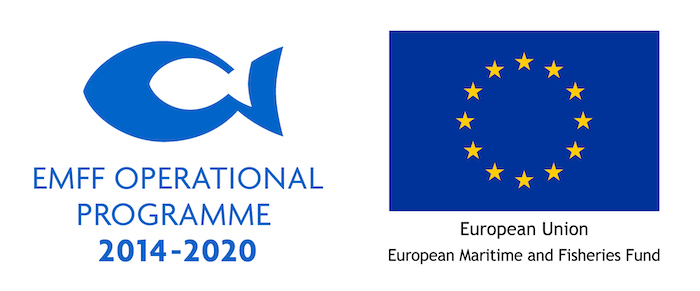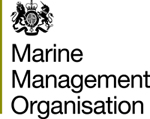

Scallops have two large shells joined at the bottom by a hinge and inside they have a juicy white muscle which attaches to both shells. Scallop meat is prized for its delicate taste and texture.

7e and f (Inshore Cornwall: 0-6 nm)
Diving using scuba apparatus is a low impact method of collection of shellfish.
Learn more7f.l (7f) Bristol channel - outside 6nm
Scallop dredges are heavy duty metal framed, toothed nets that are pulled over the seabed to target scallops which live buried in the sand or mud seabed.
Learn moreEngland (English Channel - Offshore West: 7e.O) (7e)
Scallop dredges are heavy duty metal framed, toothed nets that are pulled over the seabed to target scallops which live buried in the sand or mud seabed.
Learn moreEnglish Channel - outside 6nm Cornwall: 7e.I (7e)
Scallop dredges are heavy duty metal framed, toothed nets that are pulled over the seabed to target scallops which live buried in the sand or mud seabed.
Learn moreEnglish Channel - Inside 6nm - 7e.I (7e)
Scallop dredges are heavy duty metal framed, toothed nets that are pulled over the seabed to target scallops which live buried in the sand or mud seabed.
Learn moreCornwall Good Seafood Guide rates fish on sustainability using a scale of 1 to 5.
1, 2 and 3 are recommended, Fish to avoid are rated 5.
We use the system devised by the Marine Conservation Society (MCS) so our scores are comparable with the scores produced by MCS for the UK and fisheries from all around the world. For more information on scoring click here.
Stocks of scallops in UK have long been understudied. A recent large scale government funded stock assesement carried out by CEFAS carried out in 2017 and 2018 showed that scallop stocks in our area are likely to be close to sustainable levels but it is a very complex situation and more research is needed. This is the first time a project of this scale has been carried out and it is hoped that if it is continued it will show an improving situation regarding stocks of scallops. The work has identified 5 important scalloping areas in the Western Channel and one smaller area off the north Cornish coast in area VIIf (Trevose Bank).
Seafish Risk Assesement for scoring seafood has analysed scallop fisheries in the South west and estimate that there is a moderate risk for this stock. The Seafish responsible sourcing guide states that Periodic intensive fishing by large (>15m) ‘nomadic’ boats from England and Scotland in recent years has threatened the viability of small-scale inshore fleets that rely on local beds. Number of boats fishing for scallops in area VII increased by 26% between 2002 and 2014.(MMO)
Landings of scallops in Cornwall have dropped significantly from a previous rate of 1-2000 tonnes per year to less than 500 tonnes for 2020 and 2021, for the first time in nearly 30 years.
The majority of scallops (98%) are caught using scallop dredges. A very small quantity are collected by divers. Scallop dredges are steel framed nets that are pulled along the seabed. Spring loaded teeth act like a rake cutting into the seabed and flipping scallops up and into a net. The teeth can hinge backwards to prevent the dredge snagging on the seabed if it hits rock or wreckage. Use of these ‘Newhaven dredges’ have a well-documented impact on the seabed (Sewell and Hiscock) particularly the first time an area is fished but in some areas which have already been dredged the additional impact can be argued as far less. Fragile habitats such as maerl beds and seagrass beds are particularly vulnerable to damabe by scallop dredging, as are fragile invertebrates such as sponges, bryozoans and corals.
Scallops are also collected by divers in shallow waters (less than 30m). Diving for scallops is very selective and has no impact on the wider environment.(Sewell and Hiscock)






Cornwall Good Seafood Guide is underpinned by the Marine Conservation Society (MCS) Good Fish Guide. The first UK consumer guide to sustainable seafood. For more information visit www.fishonline.org
Cornwall Good Seafood Guide is here to help us all make sustainable seafood choices. Choices that will help us keep the oceans healthy and Cornish fishers' futures safe. This website is funded by Cornwall Wildlife Trust. If you would like to make a meaningful difference to the health of our oceans, please consider making a donation to the Cornwall Wildlife Trust Ocean Emergency fund. Your donation will help safeguard these remarkable environments, ensuring that they continue to thrive for generations to come. Together, we can be stewards of the seas and champions for a healthier, more sustainable future.